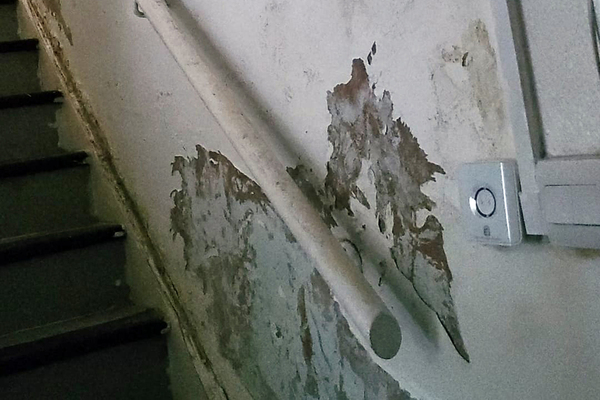You are viewing 1 of your 1 free articles
City council cuts homelessness officer caseload in half
Nottingham City Council has halved homelessness officers’ caseloads since the start of the year – but they are still double the “manageable” level.

According to a new report on homelessness and rough sleeping, the council said that a manageable level of cases is around 35 to 40 per officer, but the average is currently 72 per officer.
However, increasing staff numbers in its housing solutions team has seen this number fall from 165 per officer at the start of January. Nottingham said this has also led to no single officer having a caseload over 90.
The report, prepared for the city council’s housing and city development scrutiny committee on 15 July, said under-resourcing of the team had led to a “backlog” of households living in temporary accommodation and “extremely high caseloads” for officers.
The backlog meant staff were “largely having to prioritise crisis cases and so were unable to spend adequate time on prevention and advice”.
In Nottingham, the total number of people in any form of temporary accommodation on 31 March 2023 was 599. On 31 March 2024 it was 776 – an increase of 177 households.
As of 18 June, the council said it is accommodating 235 households in emergency accommodation – 85% of which are families. This is up from 115 last year.
The council that said over the past year, the use of emergency accommodation – either hotels or nightly paid temporary accommodation – for homeless households more than doubled.
Nottingham said work to prevent homelessness in the first place is key but said “high casework numbers… [have] meant that there are still large numbers of households that become homeless and need assistance with rehousing or temporary accommodation”.
It added: “Once new staff are recruited and trained, the council expects to see more homeless preventions and an increase in move-on rates for families currently in temporary accommodation.”
The council is still looking to fill 14.9 full-time equivalent posts, adding that its biggest challenge has been finding “suitable” candidates.
It said it hopes to complete recruitment by August this year.
The report said other drivers for the increase are the lack of available affordable housing in the area, as well as a high demand and unaffordable rents in the private rental sector.
It said average incomes in Nottingham are “well below” national averages, while rent increases in the East Midlands have been higher than national averages.
The council said it currently has almost 10,500 households on the housing waiting list, as the number of new homes being built is less than the “significant numbers lost through Right to Buy”.
Between 2019 and 2023, Nottingham said that 988 Right to Buy purchases completed – while only 500 affordable homes were built.
The report concluded: “Nottingham faces a significant challenge around homelessness and rough sleeping, which is consistent with the national picture.
“The significant investment in the housing solutions services to enable a range of initiatives around prevention and private sector engagement, combined with investment into sourcing and reorganising temporary accommodation and measures to drive down costs, are designed to tackle the backlog and increase the flow of people into settled housing.”
Sign up for our Council Focus newsletter
Already have an account? Click here to manage your newsletters











